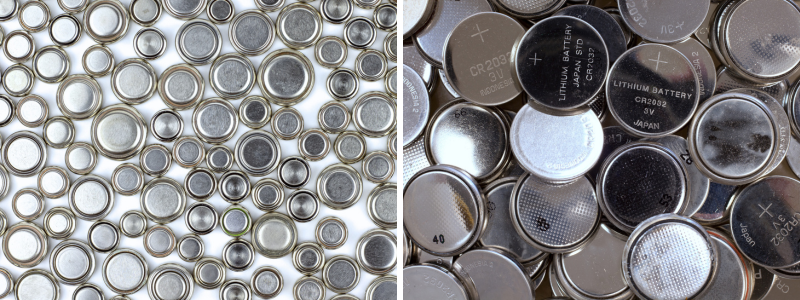
Coin-sized and smaller batteries – referred to as button batteries – are commonly found in many household electronics including toys, watches, cameras, games, hearing aids, and even singing or flashing greeting cards.
Often overlooked, these flat, round, shiny batteries – hidden in plain sight at home – pose serious health risks for children, particularly toddlers who explore by putting things in their mouths. If swallowed or placed in the nose or ears, the batteries can cause serious injury or death.
A child under 18 visits an emergency room for a battery-related injury every 75 minutes in the United States, according to a recent study. Button batteries were most frequently involved in cases where battery type was identified (85 percent of cases). The study also found that 84 percent of the patients were 5 years old or younger.
How to Protect Your Child
Crawling infants, toddlers, and young children often put things in their mouths. Because of this, there are a few things you can do to reduce the risk of accidents.
- If you think your child swallowed a battery, seek medical attention IMMEDIATELY.
- When buying, select lithium coin batteries with safety features such as child-secure packaging and a non-toxic bitter coating designed to discourage swallowing.
- Store your batteries in a secured container in a safe place, out of sight and reach of children.
- Know what items in your home contain button batteries and lithium coin batteries, including older children’s toys, calculators, and games.
- Make sure device covers are closed tightly with the screws provided. Consider taping them shut for an additional layer of security. Check devices periodically.
- Even batteries that are "dead" can be dangerous. Remove, tape the terminals, and place them in a secure container until they can be properly recycled.
- Make sure childcare providers and family members are aware of the safety concerns.

